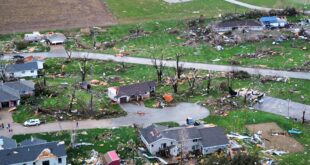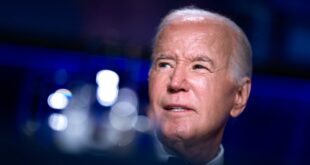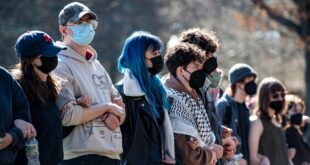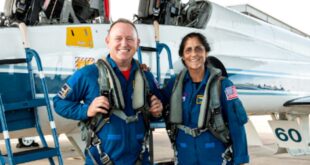[ad_1]

Jurors began deliberating Friday in the New York civil corruption trial against the National Rifle Association and its longtime leader, Wayne LaPierre.
The jury will decide whether LaPierre, the organization’s former CEO, drew millions of dollars away from the gun rights group on luxuries for himself, as well as whether other executives flouted laws and internal policies to enrich themselves.
The other defendants are the NRA itself; John Frazer, its corporate secretary and general counsel; and Wilson “Woody” Phillips, its former treasurer and chief financial officer. They are accused of violating their fiduciary duties and failing to take action against LaPierre, 74, ultimately helping him maintain power.
Out of a dozen jurors who sat through the trial, six were randomly chosen Friday morning to deliberate. Five out of six jurors need to agree on the verdict.
The jury will weigh the fate of each defendant separately and decide on a total of nine claims, which include violations of state nonprofit, estate and trust statutes. Those claims are related to whistle-blower protection violations, breaches of duties, wrongful transactions and false filings.
If they find the individual defendants liable, they will recommend the amount of money that each defendant would have to repay the NRA.
The lawsuit was brought by New York Attorney General Letitia James in 2020.
Her attorneys have spent the last six weeks in a New York City courtroom painting the NRA as “Wayne’s World,” which they said was full of free private jets, expensive meals, travel consultants, private security and trips to the Bahamas for him and his family.
During closing arguments on Thursday, Monica Connell, an attorney with the State Attorney General’s Office, compared the defendants to children caught stealing from a cookie jar.
She urged the jury to hold the defendants accountable, even if their attorneys outlined steps they may have taken to address or correct violations.
“Saying you’re sorry now,” she said, “doesn’t mean you didn’t take the cookies.”
The NRA’s attorney countered by distancing the group from LaPierre and fortifying its defense that former rogue employees had stolen from the NRA without the group’s knowledge.
“If this is a case about corruption, it wasn’t corruption by the NRA,” NRA attorney Sarah Rogers told jurors.
In his final remarks, LaPierre’s attorney, P. Kent Correll, said James set out years ago to “decapitate” the NRA and sued LaPierre as part of that goal.
On the stand, LaPierre said he used the NRA’s financial resources on chartered private jets, family trips, black car services and high-end gifts for friends. He also testified that he authorized thousands of dollars in helicopter rides so that NRA executives could avoid getting stuck in traffic while traveling to and from NASCAR races.
During cross-examination, LaPierre testified that it was wrong to charter private planes and limo services for personal use.
LaPierre served as the NRA’s executive vice president for more than 30 years before he resigned at the end of January, citing health issues.
He testified that he repaid what he owed the NRA with interest and that he does not feel entitled to any payment now that he has stepped down.
If the jurors find LaPierre liable, State Supreme Court Judge Joel Cohen said, they can decide if LaPierre should receive a credit for relevant payments he has already made.
In a potential second phase of the trial, Cohen, who has the final say over monetary damages and remedies, could determine whether Frazer should be removed from his post.
Frazer is the only individual defendant who still works for the NRA. His lawyer said Frazer risks losing a job he has held for about 30 years and “every penny that he’s ever made at the NRA.”
Cohen could also decide whether any of the individual defendants should be permanently barred from serving on the board of any charity in New York and whether an independent monitor should oversee the NRA’s finances.
None of the defendants has been criminally charged as part of James’ lawsuit.
James had initially set out to dissolve the NRA as part of her suit. However, Cohen dismissed that effort in 2022, saying her complaint “does not allege the type of public harm that is the legal linchpin for imposing the ‘corporate death penalty.’”
The NRA has operated as a nonprofit charitable corporation in New York since 1871. Its assets are required by law to be used in a way that serves the interests of its membership and advances its charitable mission.
In the last few years, the NRA has been considerably weaker, with less influence in the political sphere and fewer members. Membership fell to 4.2 million from nearly 6 million five years ago, The New York Times reported.
Membership dues dropped by $14 million from 2021 to 2022, according to an audit filed as part of the lawsuit.
 Latest Breaking News Online News Portal
Latest Breaking News Online News Portal




